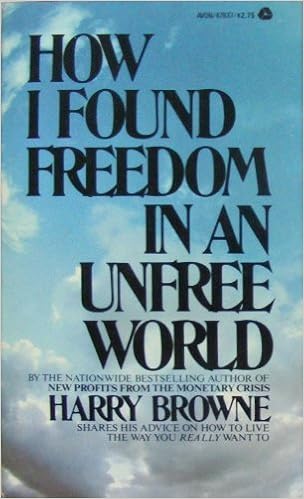Mutual Aid Society vs Insurance
Posted by Daniel Larimer on .It has long been accepted that blockchain technology is a perfect fit for the Financial industry. Now it is time to consider how the technology could benefit the Insurance industry. Maybe someday it will also take over Real Estate and completely conquer the FIRE sector of the economy.
Insurance
Insurance has become the cornerstone of our risk-averse society. You can get insurance on almost everything. Over time insurance has gone from a fully voluntary system consisting of many different mutual aid societies to one of mandatory participation in many areas. Examples of mandatory insurance include:
- Welfare - this insurance program is paid for with our taxes
- Social Security Disability Insurance - this insurance is paid for from payroll taxes
- Social Security - this “non-insurance” covers us in the event we are unable to save or work in our old age
- Car Insurance - this is mandated to register your vehicle
- Unemployment Insurance - your employer is mandated to pay for this, which means it comes out of your salary.
- Health Insurance - with ObamaCare (Affordable Care Act) everyone is mandated to purchase health insurance or face heavy fines.
- FDIC - this insurance is paid by your bank, which ultimately means depositors earn lower interest and therefore all depositors are paying for this insurance.
Over $1 trillion dollars ($1,000,000,000,000) per year is spent on private health insurance. Studies have shown that in this industry alone, over 30% is spent on administrative overhead. The average profit margin for insurance companies is about 5%. All told a US citizen earning the median income with “employer provided” health care and average car insurance is paying almost $15,000 per year in “insurance” premiums. For many people more money is spent on insurance than on rent and almost everyone pays more for insurance than they do for food!
The FIRE economy is on fire as costs are spiraling out of control. More and more people are unable to afford the insane amount of insurance that is being forced upon them. It is time for a change. If blockchains could reduce overhead expenses to just 5% then it would save our economy $300 billion dollars every year in the health insurance industry alone. This is more money than the total amount given to charity every year.
Mutual Aid Societies
Many of the major insurance companies today were once mutual aid societies (MAS). Mutual Aid societies differ from insurance companies similar to how a credit union differs from a bank. To put it in terms familiar to cryptocurrency users, insurance is a centralized hub and spoke model where the insurance company makes financial commitments to its customers. A MAS is a decentralized peer-to-peer model where the members take care of each other.
Actual Costs vs Projected Costs
Insurance companies must make estimates via actuaries. Actuaries gather statistical data and use that data to determine the risk profile of each type of customer. This is not an exact science which means that it is possible for an insurance company to charge too little and as a result go bankrupt and default on its obligations. More often insurance companies build in a healthy margin to ensure they remain solvent. This margin includes their profit.
Mutual Aid Societies don’t make promises based upon estimates. Instead, they use most of each day’s income to cover as many people as they can that day. This works well for situations where “covered events” don’t cluster, but are somewhat randomly distributed among the members. Think of it like this, if on any given day about 1% of the members are sick, then there are 99 healthy members to take care of the 1 sick member. In some extreme cases there may be as many as 5 of the members who are sick or on some days no one may be sick. Any way you slice it there is always a steady stream of income and a somewhat steady stream of expenses. There is no need for a MAS build up reserves or make estimates, instead it operates on a pay as you go model. A MAS operating in this manner will never be insolvent.
Investment Risk
Insurance companies are required by law to maintain large reserves. Either these reserves are invested in something or the policyholders are suffering an opportunity cost as they lock up money today without getting a return. Even if an insurance company opts for the lowest risk option and simply keeps the money in a bank, the reserves are still being put at risk because the bank will invest the money in risky loans.
When you pay into an insurance company you are in effect trusting that company to invest your money in such a manner that they will be able to pay out claims when the time comes.
Under a MAS there are minimal reserves to be invested. On a blockchain based MAS the reserves that do exist are held as a crypto-currency. This currency may fluctuate in value, but that doesn’t impact the real value of today’s revenue vs the real value today’s expenses. Because a crypto-currency is not a liability of any other party, there is no counterparty risk on the reserves. In a growing MAS the value of the cryptocurrency is likely to appreciate. In a large, well-established MAS the cryptocurrency is likely to be as stable as many national currencies.
Privacy
Our society has become very private. Insurance companies work with doctors to keep our health issues private. In a MAS, especially one built on a blockchain, there is no privacy because you must publically request help. In a MAS everyone else is your insurance and therefore to get help from them you must disclose your need.
The need for privacy isolates us from our fellow man and is usually driven by fear. Fear of judgment, stigma, pity, or that we will be a burden on others. As a member of a MAS you are not a burden because you have already helped carry the burden of others. Accepting help from someone who offers it can often be a bigger blessing to the giver than the receiver.
Even though all claims must be made public, it is still possible to hire trusted individuals to validate the private details of a claim and report on the legitimate costs. If other members in the MAS trust the validator then they may give to your cause without actually knowing the details. Privacy comes at the cost of higher validation costs and likely lower donations when a request is made.
Personal Relationships
The significant difference between a blockchain-based MAS and an insurance company is that each member gets to know and choose which other members they help with their premium. You aren’t paying $100’s of dollars every month to a faceless corporation, you are giving $100’s of dollars every month to help real people, with real stories, and real faces. You get to receive thanks and appreciation from the people you help. Even if you never need to request help from others you have still gained a priceless joy from your giving.
The act of giving to, relating with, and sympathizing with other people in society helps build an individual’s love and compassion in a way that paying an insurance premium never could. Love and compassion for others is like any other muscle, the more we use it the stronger it becomes. The impact this experience has on people can have a far reaching effects on the quality of an individual’s life as well as the quality of the overall society we live in.
Fraud
All insurance companies must deal with insurance fraud. Fraud can consist of anything from faking an illness, stealing your own valuables, or intentionally crashing your own car after you learn of an expensive mechanical failure. Insurance companies send out investigators in an attempt to mitigate fraud.
Within a MAS fraud is detected and/or prevented by massive peer review and reputation. It isn’t a matter of simply deceiving one insurance inspector who must find tangible evidence to deny your claim, you must deceive a jury of your peers who may choose to deny your claim simply because they don’t like you or they think your claim smells fishy.
Even with a decentralized peer to peer MAS there can still be inspectors who are hired to render a professional opinion. If the inspector has a solid reputation then many members of the MAS will consider that “good enough” for them. In this way a MAS can have the same (or better) evaluation of claims as an insurance company.
Ultimately all fraud shows up as an increase in the probability of a claim and therefore higher premiums. Even if a MAS suffered from 30% more fraud than an insurance company it would still manage to maintain premiums that are competitive with insurance companies. To the extent that the MAS minimizes fraud it can offer even lower premiums than an insurance company.
Individualized Risk
Insurance companies group people who have similar risks in order to prevent those who have low risk profiles from subsidizing those who have high risk profiles. A healthy 20 year old has a lower probability of having a medical expense than someone in their 60’s. Ideally you would have a group of 1000 or more 20 year olds, and another group of 1000 or more individuals in their 60’s.
A MAS works best when all members have a similar risk profile because all people are given the same maximum benefit per contribution ratio. A group of 20 year olds could give the same monthly amount and receive 2 or 3 times larger payout in the event they are sick compared to a group of 60 year olds.
This is where insurance companies have an edge over a MAS. Anytime a risk profile is highly individualized or specific an insurance company can hire an actuary to estimate the odds and sell you insurance. A MAS requires a society of people with similar risks to function.
Christian Health Sharing
There is already a large and growing movement to create an alternative to health insurance in the form of Mutual Aid Societies. Organizations such as Medi-Share or Liberty Health Share have provided their members with much cheaper health coverage than they could get anywhere else. Fortunately for these societies the government has granted them a religious exemption to ObamaCare. All told billions of dollars worth of medical expenses have been shared through these “societies”.
These health sharing ministries prove the concept of MAS is as viable today as it was 100 years ago. With blockchain technology we can bring a wider range of “cost sharing” services at lower costs to more people.
Conclusion
A mutual aid society can perform as well or better than any insurance company in many areas of our life. It is my intent to explore how we can use the idea of MAS to defend individual liberty in peaceful and nonviolent manner.
Recommended by Bytemaster
(see more...)









